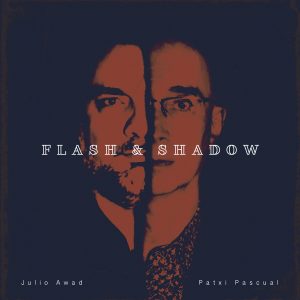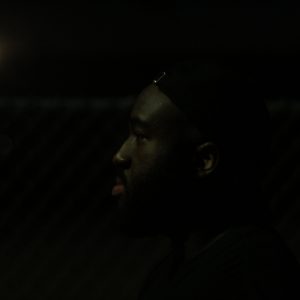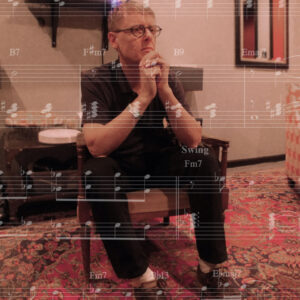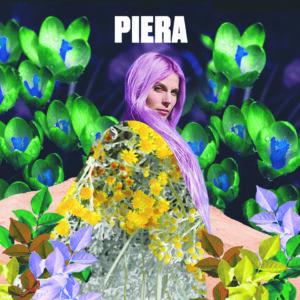Michael Lauren is a drummer from New York City, currently living in Portugal. According to his site, he is a founding member of the world-renowned Drummers Collective NYC, Professor of Drum Set Studies at Escuela Superior de Música Jam Session Barcelona, España and is the founder / artistic director of The International Drum Academy Lisbon, Portugal. Also he was the Professor of Drum Set Studies (2003-2020) and head of the Jazz Department (2005-2010 & 2015-2017) at the Escola Superior de Música, Artes e Espectáculo (ESMAE) Porto, Portugal.
Michael led his own bands Bashier, Magister Ludi and The Michael Lauren All Stars, whose debut CD “Once Upon A Time In Portugal” (2016) and the follow up CD “Old School / Fresh Jazz” (2018) were chosen as one of the 10 best national albums (Portugal) of 2016 and 2018 respectively.
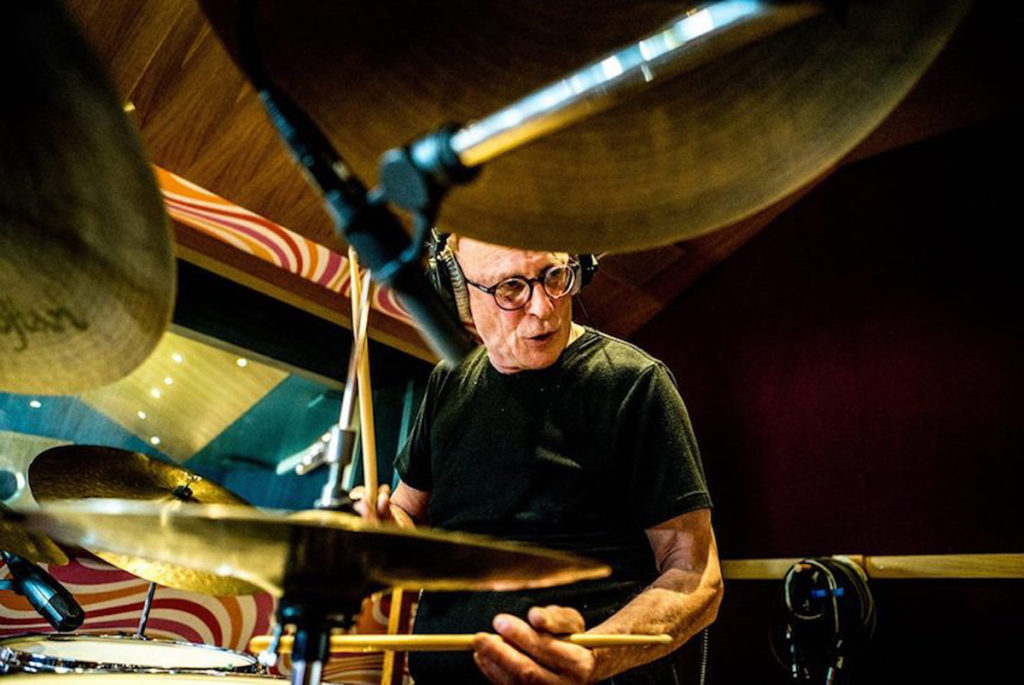
Why have you chosen jazz?
I started playing drums at the age of 8 in 1958. My first drum teacher was Nat Foodman, who was one of the most renowned drummer/percussionists in NYC. In fact he was hand picked by Leonard Bernstein to play the original production of West Side Story, which was “Broadways” first musical with a contemporary score, which included modern jazz. I was listening and playing along with the music of Miles Davis, Frank Sinatra, Horace Silver along with many of the greatest Swing drummers of the 30’s & 40’s at a very impressionable age under the guidance of my teacher. I fell in love with the feel and attitude of jazz immediately and have never looked back. Fortunately I was also attracted to the Rock & Roll and Pop of the early 60’s. I loved the Stones, Beatles, Beach Boys, Kinks, Dion, Fats Domino, Motown, Blues, James Brown, pretty much everything I heard I wanted to play. So along with playing in my secondary school’s Big Band and small jazz groups I was playing dance gigs as a young teenager. I have always been a multi-stylist, but in the end I see myself as a jazz drummer with a Rock and Roll heart. I really think music chose me. Music is not just what I do, but what I am.
Your last album is titled “Old School / Fresh Jazz”.
What is the difference between old school and fresh jazz?
There are a number of ways to define the type of jazz one is listening to, as all styles have characteristics that make it what they are, even general terms like “Old School” and “Fresh Jazz”. Therefore, if one knows the characteristics of these broad expressions one can understand what they are listening to. “Old School” jazz has beautiful and memorable melodies played by the traditional instruments of jazz: trumpet, saxophone, trombone, piano, guitar, acoustic bass and drums. “Old School” is based on the Hard Bop, Cool/West Coast and Post Bop/Mainstream styles that were popular in the late 1950’s and the 1960’s.The music can be relaxed or intense, is acoustic, deep swinging, emotionally committed with the use of established song forms, the vertical harmony of Be Bop, accessible soloing, dynamics and of course, the Blues. On the other hand, “Fresh Jazz” embraces new technologies and instruments, both acoustic and electric, that are not usually associated with “Old School” jazz. “Fresh Jazz” also incorporates new genres, like Drum & Bass, Techno, Hip Hop, and Break Beat as well as more complicated metrics/rhythms, broken grooves and classical compositional techniques like metric modulation. “Fresh Jazz” is often a mix of European style jazz with different genres of American jazz. This hybrid style includes all the characteristics of both the the Free Jazz movement (avante garde) of the sixties and modern classical music. Computer generated sounds as well as the utilization of DJ’s, Rappers, turntableists, scratching and beat juggling can all be heard in “Fresh Jazz”.
How was your last album created? What was the original idea?
Two years after my debut Michael Lauren All Star’s album “Once Upon A Time In Portugal”, which has been highly praised by both Portuguese and International jazz critics, I told the band that I wanted to record a new album in either the late winter or early spring 2018. The idea of this second album was to create a more eclectic, accessible, and inclusive record. One that would not only feature my versatility as a drummer but would once again highlight the talents of the All Stars. Second records are always tricky because you have new expectations and the added pressure to make a recording that is as good or better than the first one. So like the first album, I asked for material from anyone in the band who wanted to write for this one. I told the guys that I wanted this record to still retain the exciting modern hard bop tradition of the first one, but on this one they could stretch out and write what they thought would work best for both the instrumentation and the band’s sound. I also asked some of the guys to write a specific type of tune. Additionally, I went outside the band for an up-tempo hard bop tune that I felt the album needed. I am grateful that my band and Portugal has so many excellent composers. In fact one of the reasons I wanted to make my records was so I could feature this world-class talent. There were certain concepts and ideas that I wanted to repeat on this album. There would be no rehearsals of the new music before the recording date, tunes with strong melodies, minimal overdubbing and solos that were short and succinct. Structurally I envisioned the album to be a mixture of short duets and longer ensemble pieces. I created the six duets about a month before the recording session. I wanted the duets to be in a more contemporary or “Fresh Jazz” approach and as separators they would be the bridge between the longer tunes. It was only on the first day of recording that the band listened, for the first time, to each of the six duets’ drum ideas and concepts. Only after playing all the grooves I asked each band member to choose the groove they wanted to play on. The only exception was the duet of drums and contrabass. I knew before hand which groove I wanted Carlos Barretto to play on, and that he should play with the bow. All the duets were improvisation in its purest form: intuitive playing, no preparation and the freedom to make each duet work. The total amount of time spent on the album was about three months. We did the recording in three consecutive days and the bulk of the mixing was done in five days, with additional tweaks, changes and mastering done later. The album was recorded in Estúdio Vale de Lobos, Lisboa, Portugal and engineered by Pedro Vidal. It was then mixed at Cellar Sound, NYC by Michael Crehore & Gary Kelly and mastered by Michael Crehore. I produced the record. My initial objective for this album was to create a record that would appeal to a wide variety of both experienced and novice jazz listeners. That this multi-stylistic album also captures today’s eclectic state of Contemporary Jazz is a bonus. I couldn’t be happier that this is what occurred!
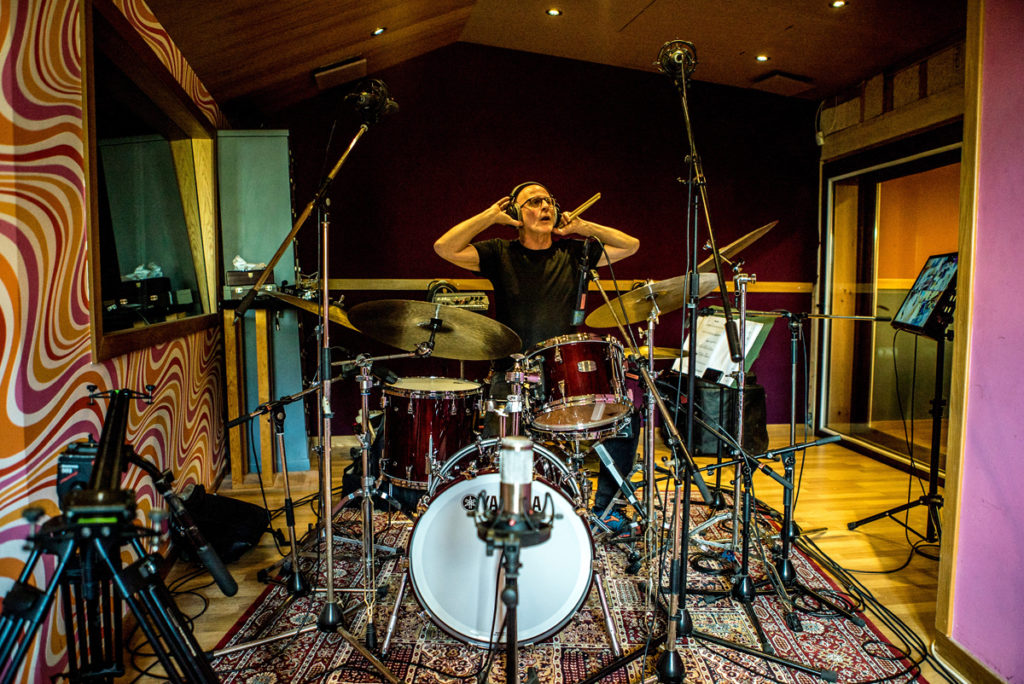
At your site it is written that you are a founding member of Drummers Collective and taught there for over 25 years.
Could you, please, tell more about this project?
The Drummers Collective opened its doors in the fall of 1977. The idea behind the school was to provide quality drum/percussion instruction by a faculty composed of successful and experienced New York drummers who loved of teach. It was to be a school where only the drum set, hand drums (congas & bongos), Brazilian and Cuban percussion would be taught. At that time in New York City, drummers/percussionists could only study with either a private teacher or attend a College of Music (Ex. Berklee College) or the music Department of a University (Ex. U. North Texas). From day one, the school’s original owner Rick Kravitz, who was a classical percussionist and played some drum set, gave the faculty the opportunity to create their own teaching programs and courses. We were given free reign to teach in our private classes whatever we felt the student needed. There was no curriculum, no oversight, no exams and no recitals. In fact my first book “Welcome to Odd Times” was written for the class I was teaching about playing in Odd Time signatures. The faculty created the environment we all worked in. We had total control over our schedules and because we were busy artists recording and performing all over the world, we were able to reschedule our classes whenever we had performing conflicts. In fact our teaching positions were held for us even when we went out on the road for extended periods of time. Students didn’t complain because they understood that they were getting the best information and guidance from in-demand, world-class musicians, and that there were other teachers they could study with at the school. What we taught at the Collective was practical real world techniques not just theoretical concepts. It was our collective experience that made the school unique. We knew we had created a truly special learning atmosphere for our students. What was really cutting edge at the time was that we were the first school to teach Afro-Cuban and Brazilian rhythms for the drum set in an organized way. Teachers were happy to share their knowledge, ideas and talents with each other and their students. There was never a competitive vibe. Students were there to learn and to be prepared to work as professional musicians. The Collective always had an open and nurturing spirit in which the students could develop their skills. We as a faculty, set the standard for all National and International drum schools that opened up after us. Our students came for all over the world. What better place to learn music than in NYC! Our students disseminated our ideas about music and teaching music when they went home. We knew we were changing drumming and drum education forever. Over time the school became more structured and more organized. A curriculum was created and the school became accredited. As the most senior faculty member, I made sure that the changes being made would not destroy the initial spirit and concept of the school. At times it was a fight for sure! Since I left New York in 2003, I do go back, from time to time to give master classes or teach some private lessons. It is still a great and special school. Of course there are new teachers, and new drumming styles have been created and are being taught. The school changed the name Drummers Collective to The Collective School of Music in 2001 as other instruments (piano, guitar and voice) were added to what one can study. Although I am no longer directly involved at The Collective, I have heard through the grapevine that a foreign entity bought the school five years ago. How this will affect the future of the school still remains an open question. Yes I am very proud of my more than 25 years teaching at Drummers Collective. The accomplishment of the school during my time there and still today speaks for itself.
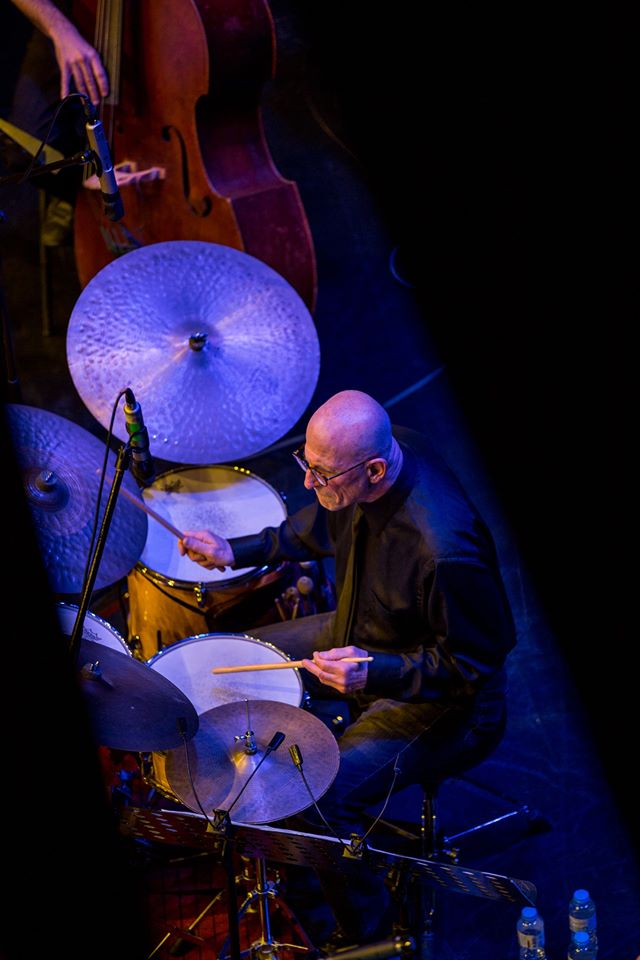
Why have you left New York and moved to Portugal?
Following the suggestion of one of my Portuguese students at Drummers Collective, I visited Portugal for the first time in June of 1998 for a vacation and loved the country. I returned two more times to give a few workshops, including two workshops at ESMAE, and also to play a number of concerts. It was after this last visit that I was offered by the Coordinator of ESMAE’s Jazz Department the position of professor of drum set studies. The year was 2003. Relocating to Europe had often been on my mind because I had always thought highly of the European life style and its social values. Of course being a New York musician, I knew I wasn’t going to play as much as I did in the States, but life is about making choices and I chose to move to Portugal, principally as an educator with the prospect of doing something extraordinary in my career. I was confident that I could change the level of drumming and influence the future of jazz in my new home. It was a unique opportunity, and one that I just couldn’t turn down. Timing is everything and I was just in the right place at the right time. It has now been more than 16 years since I began teaching at ESMAE (I retired from ESMAE in February of this year). During that time I have been fortunate to work with a wonderful group of committed, conscientious and talented drum students who have become many of the new generation of top Portuguese musicians and educators. I am very proud of what I accomplished and that I had achieved what I had set out to do when I accepted the position at ESMAE. I had changed forever Portuguese jazz drumming, jazz education and Portuguese jazz. I also knew that there were many excellent musicians living in Portugal, and I never doubted that I was going to play with with many of them. Fortunately I have had a substantial quantity of quality music to play. Portugal has been a terrific country for me to both live and work. The quality and tranquility of life, the food, the sun, and the warmth of the people is wonderful. Do I miss NYC? Sometimes, but without any doubt it was the right decision.
What are you going to do next?
With so much having changed in the music business because of COVID19, making decisions about I want to do next has become much more complicated. Hopefully some normalcy will resume soon and musicians will once again perform in front of a live audience in both clubs and festivals. However nobody knows for certain what the conditions will be when live music returns. As of now, I know I will continue playing with the Orquestra Jazz Algarve as the concerts that were cancelled have been rescheduled for the fall. I am also excited about a new project that I became involved in last year called Drums & Blues. This is our first single:
This is a two-drummer Blues band and I am the invited guest. I love playing shuffles. Concerts are currently being booked for the fall and I anticipate that they will happen. The future of my existing All Star Band is a bigger question. I love the sound of this band and the musical approach, so I think about doing another record in 2021 with the guys. Unfortunately I have had a difficult time booking concerts in 2019 as the cost of taking a seven piece unknown band outside Portugal seems to have become an obstacle and in Portugal concerts for suitable compensation are becoming scarcer. I still hope I will be booked for live concerts going forward. I also plan to do concerts in Spain and Italy in 2021 with bands that I have in those countries. They are both excellent quartets, but of course with a different sound. We play a number of tunes from the two All Star albums, as well as some of my favorite jazz standards. I have found it is easier to get promoters and club owners to bring me to their country if I work with local musicians. It saves them money. Of course I will continue to teach at my drum Academy (International Drum Academy) and make workshops in Portugal and abroad. Music is not just what I do but what I am!
At your site I can find two albums only. I can’t believe that that’s all you have!
Below are some Albums/Tracks that I have played on that are on Spotify. Enjoy!
Moodswings – Robert Kraft & The Ivory Coast
Given Soul – Hugo Alves Quartet
View From The Other Side – Gary Kelly
The Postcard Brass Band – The Postcard Brass Band
Pop & Roll – The Postcard Brass Band
Brooklyn Basement Blues – Popa Chubby
Pope – Manley Pope
New York Story – Patricia Tortorici
Valentine – Claire Cooper
